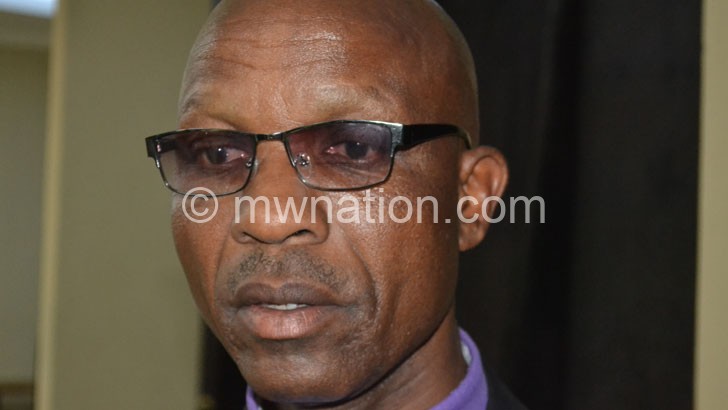Parties differ on new constituencies
Political parties represented in Parliament have expressed divergent views on the proposed new constituencies as established by the Malawi Electoral Commission (MEC) during a recent redemarcation exercise.
However, all the parties agree that the exercise is expensive for the Malawi economy.

While Malawi Congress Party (MCP), People’s Party (PP), Alliance for Democracy (Aford) and United Democratic Front (UDF) support the idea, Democratic Progressive Party (DPP) has outrightly rejected it for being expensive.
MEC last month announced a resolution to increase constituencies from the current 193 to 228.
In a statement yesterday, DPP spokesperson Shadric Namalomba said the party wants the constituencies to remain at 193.
The former governing party argues that money for paying new MPs can best be used to grow infrastructure or industrialisation and commercialisation of the agriculture sector in line with Malawi 2063.

The expansion, once approved by Parliament, will have a significant economic bearing as each member of Parliament (MP) receives around K2.2 million monthly package, excluding allowances.
Namalomba said: “The DPP believes that the economy of Malawi which is classified by the World Bank as a least developing country with a [gross domestic product] GDP of $12 billion, and with a per capita of $625.29 as of 2020 cannot sustain 228 constituencies.
“To illustrate the point, at the current remuneration of members of Parliament, such an increase will cost taxpayers an additional expenditure of K16.8 billion in five years in paying members of parliament in additional constituencies alone.”
MCP publicity secretary the Reverend Maurice Munthali yesterday said the recommendations are long overdue because the need to re-look at the constituency boundaries was raised more than a decade ago.
He said: “When one weighs the economic cost behind increasing the number of constituencies with what Malawians will gain from the same, you feel the latter far outweighs any or all concerns anybody can raise.”

PP publicity secretary Ackson Kalaile-Banda said they will support the matter in Parliament, as it ensures fair distribution of resources across the country.
He said: “This is dealing with how resources will go to voters. The idea is an expensive one but let us understand that the more the constituencies, the more the people will easily access development fairly.”
Aford president Enock Chinaha said while they support the idea, they are still waiting for the final outlook of the constituencies to make a final decision.
“But it’s a welcome development because some constituencies like in Mzimba are too big, they are equal to some districts, yet they receive similar constituency development funds,” he said.
UDF secretary general Kandi Padambo said while they support the idea, they also made submissions to MEC on what they expect in the exercise and will only support it in Parliament if the process is in line with their submissions.
UTM Party spokesperson Frank Mwenifumbo said they will make a final decision once the consultative process is done, adding, the party is fully participating in the process.
MEC chairperson Chifundo Kachale told the Centre for Multiparty Democracy last week that while the commission appreciates the importance of economic considerations, it resolved to remain faithful to discharging its functions within the framework of the existing legal instruments.
Political and economic analysts have also termed the exercise as wasteful.
In 1994, the Malawi Parliament had 177 MPs while a re-demarcation exercise increased the number to 193 in 1999.





